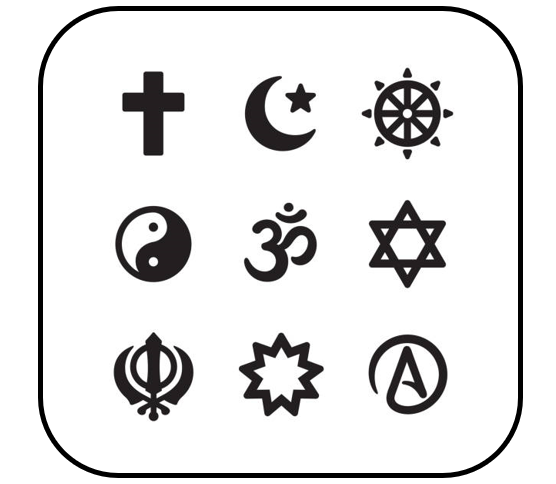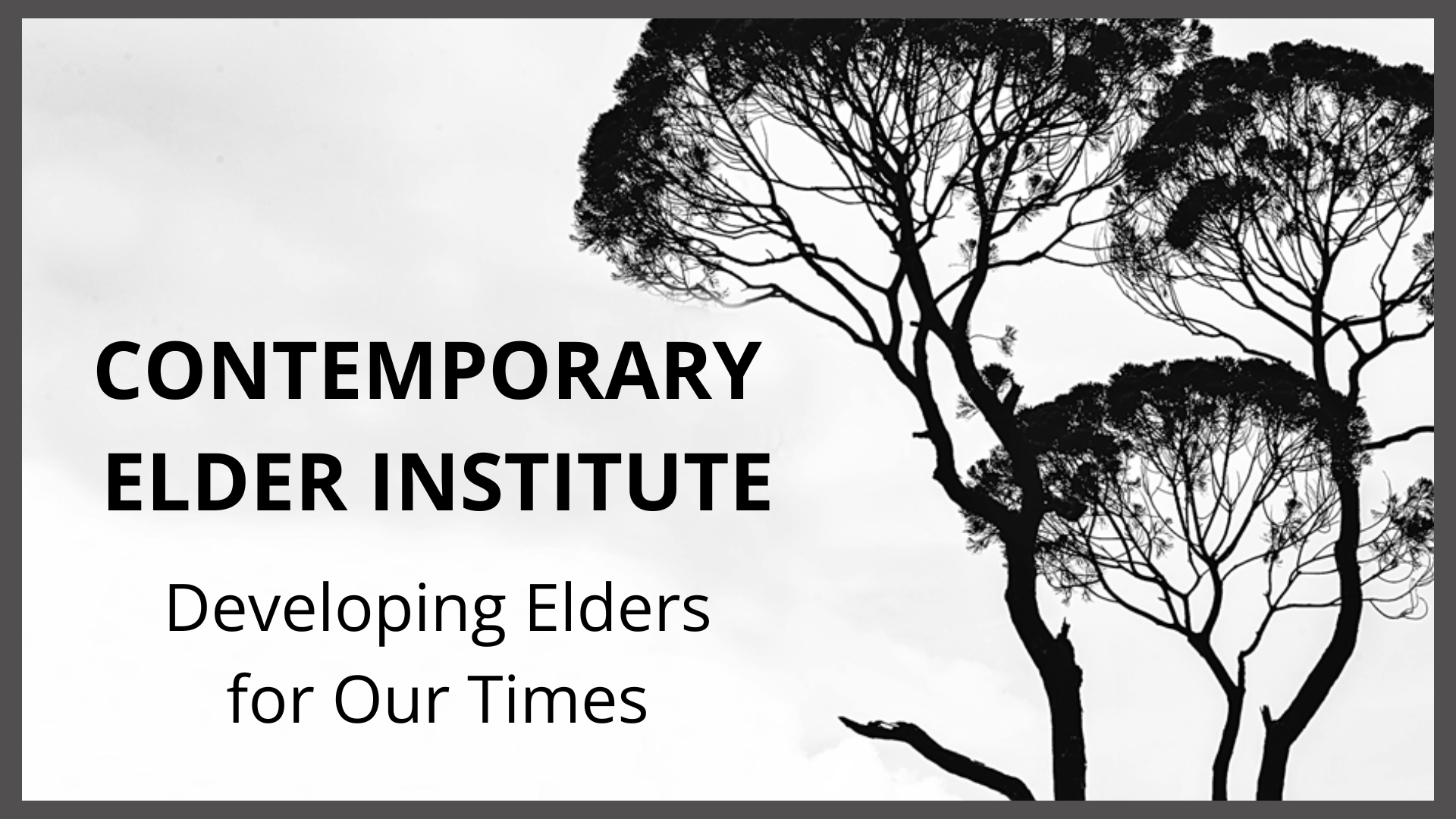Distinguishing Your Dharma: The Sangha’s Distinctive Competence
Distinguishing Your Dharma:
The Sangha’s Distinctive Competence

Distinctive competence is a concept often used in strategic management and organizational theory to describe the unique capabilities, skills, resources, or advantages that set a company apart from its competitors and enable it to achieve a competitive advantage in the marketplace.
Based on our Sangha members' reports, third-party observations, and testimonies, we can affirm that participating in our Sangha enables members to realize their Dharma. Recognizing your Dharma makes our particular entity distinct from all other groups in the “elder” and transformational industries in our Western ethos. Our purpose, structures, governance, and operating principles are designed for members to recognize and live their Dharma.
Dharma is not dogma. Dharma does not follow doctrine, tenet, creed, ideology, or canon. It is inside out, not outside in. You can’t teach Dharma. Dharma must be self-revealed, self-realized, self-attained, self-experienced, and self-actualized.
Dharma is your higher calling. Your higher purpose. Your raison d'etre. Your reason for being. What you were meant to do with your life. Your sacred mission. Your celestial mandate. Your divine assignment. Your ordained duty. Your holy task. Your cosmic destiny.
Most Western high achievers (I am one of them) have difficulty distinguishing their Dharma. The family relationships, career, social, and societal conversations, and the constant internal dialogue are so loud and intrusive that they drum out your capacity to recognize your Dharma.
But once these conversations are quiet, you can reach your Dharma through prayer, meditation, mindful movement, self-inquiry, and contemplation. You’ll know it's your Dharma – insight, experience, intuition, and body sensations coalesce, lock into place, and fall into perfect alignment.
And when you begin to follow your Dharma, you immediately notice the transformative impact on mind, body, and spirit. You finally know what you are here for. There is no question or even concern about it.
The soul yells, “Bingo.”
WHAT IS DHARMA and HOW THE SANGHA DOES IT
What is Dharma? Like any concept, it is contextually enshrined. But you know it’s the real, higher truth because it has existed in every culture, religion, philosophy, and poem for millennia. When the concept is centuries old and still very much existing, it’s evidence-based.
But the clincher is that Dharma is the most intimate of connections. When you realize your unique Dharma, it is something you directly experience; it resonates deep within your very self. You sense a sacred bond with your life's purpose, an intimate connection to your true calling, a heartfelt connection to your spiritual journey. You feel you finally have come home.
Dharma is a concept rooted in Hinduism, Buddhism, Jainism, and Sikhism. It also exists in Judaism and Christianity. Generally, it refers to the moral, ethical, and spiritual duties and obligations that guide an individual's conduct and behavior in alignment with the divine order and universal principles.
In Buddhism, Dharma refers to the teachings of the Buddha, as well as the natural laws and principles that govern existence. It emphasizes the path to enlightenment, which involves understanding the true nature of reality, overcoming suffering, and cultivating moral virtues such as compassion, mindfulness, and wisdom.
In Hinduism, Dharma is often described as the moral law that governs the universe, including righteousness, duty, justice, and virtue. It is considered one of the four primary goals of life (Purusharthas), along with Artha (wealth), Kama (pleasure), and Moksha (liberation). Dharma is central to Hindu philosophy, influencing social order, familial relationships, and individual conduct.
In Jainism, Dharma encompasses the moral and ethical principles that guide individuals towards spiritual liberation (moksha). It emphasizes non-violence (ahimsa), truthfulness (satya), non-attachment (aparigraha), and other virtues as essential for leading a righteous life.
In Judaism, Halakha is Jewish law, which governs every aspect of Jewish life; this includes daily rituals, moral constants, and relationships. Like Dharma, Halakha provides guidelines for ethical behavior and living in accordance with divine principles.
And like all the other concepts of Dharma, the Tikkun Olam in Judaism is the concept translated as "repairing the world," emphasizing the Jewish obligation to participate in acts of social justice and righteousness to improve society. Tikkun Olam emphasizes moral responsibility and the pursuit of harmony and justice in the world. Hence, Jewish Dharma.
In Christianity, several Christian principles and concepts are in lockstep with Dharma. The Diving Law emphasizes obedience to God's commandments and teachings. The Divine Law asks you to live following a higher moral order. Love and Compassion are central. Service and Charity stresses service to others. Most Christians hold that individuals are called to fulfill a specific Godly purpose in their lives. Christ consciousness or Dharma, “A rose by any other name.”
Martin Luther King Jr. was Christian Dharma actualized. Gandhi was Hindu Dharma realized. Ram Dass was Eastern Dharma reified in Western form. Rabbi Zalman Schecter was Jewish Dharma, understanding his divine gifts and universal mission. All plugged into the higher Dharma to realize their individual Dharma.
So, everyone agrees: Christ, Buddha, Brahman, Ram, and King David’s descendants, a Dharmic life powerfully serves self and others. And to find your own Dharma, you need to have access to a space where the higher Dharma lives. A space beyond individual religions, a space where all religions come from.
PERSONAL DHARMA
Personal Dharma, or svadharma in Sanskrit, is the concept that everyone has a unique path or duty to fulfill in life. It is based on the belief that every person is born with a specific set of talents, skills, inclinations, and responsibilities they are meant to fulfill. Personal Dharma encompasses various aspects of life, including vocation, family duties, social roles, and spiritual practices.
Personal Dharma is closely tied to the broader tenets of the higher Dharma, which refers to the cosmic order, ethics, duty, and the laws governing the universe. Personal Dharma is seen as a microcosm of this cosmic order, with everyone playing a specific role within the larger scheme of things.
In our Sangha, accessing one’s Dharma involves self-reflection, self-inquiry, introspection, mindful movement, and meditation. It involves unclenching the past but not forgetting the past. It involves shedding previous identities and masks you have worn to survive within business, family, and society. It involves opening spiritual channels. It involves finally realizing and then accepting what you have been chosen for.
No one else can have your Dharma. Once the absolute uniqueness of your Dharma is realized and accepted, you stop needing to be better than anyone else or feeling worse because you’re not somebody else. There is no better or worse. The game of life-tag is over. You’re “it,” permanently.
You are “I am the only one.” You, yes, you, are unparalleled, irreplaceable, unmatched, like no other. Our findings continue to show that recognizing and abiding by your personal Dharma delivers greater harmony, balance, and spiritual fulfillment in life.
For me, I now know my place in the world. Following my Dharma has silenced my competitive and other ego-grasping thoughts that have ruled so much of my past. Those thoughts were the makers of my masks. How can you be jealous when there is only one of you? When you know what you are here for, you let so much go. For me, Dharma is freedom.
THE HOW WE DO IT
Our Sangha has developed itself to powerfully enhance the hearing, feeling, and intuitive understanding to recognize members’ personal Dharma. We understand that Dharma is unique to each individual, so the Sangha provides internal investigations and self-directed interrogations to reveal one’s Dharma.
Your Dharma is one-of-a-kind, single, unparalleled, matchless, and unrivaled. No one other than you can have your Dharma. None before you nor none after. You're the chosen one!
We also observe that not just knowing your Dharma but living your Dharma makes the last third of life astonishing. However, what I observe is that once you discover your Dharma, you can’t help but live it.
The Sangha is a place to realize personal Dharma because the Sangha consciously and strategically exists with and inside the larger Dharma. A grander, more universal, more celestial Dharma that allows individual Dharmas to emerge fully. Our Sangha gatherings are structured to deliver practices and processes to embody this higher Dharma.
"Sangha" is a Sanskrit term that refers to a community of practitioners. Our Sangha is a group of people who follow the teachings of priests, rabbis, holy men and women, metaphysicists, and existentialists. The Sangha actively provides support, guidance, and companionship on each member's path to their Dharma.
The Sangha is that space and place where members' personal Dharma can be realized. And to provide this space, the Sangha, as a whole, stays connected to the higher Dharma.
So we can claim Dharma is our Sangha’s distinctive competence.
“In the depths of self, Dharma's call resounds,
A whisper of truth, where purpose is found.
In following your Dharma’s guiding light clear and pure,
Unrestricted freedom and equanimity endure.”
Marc Cooper
